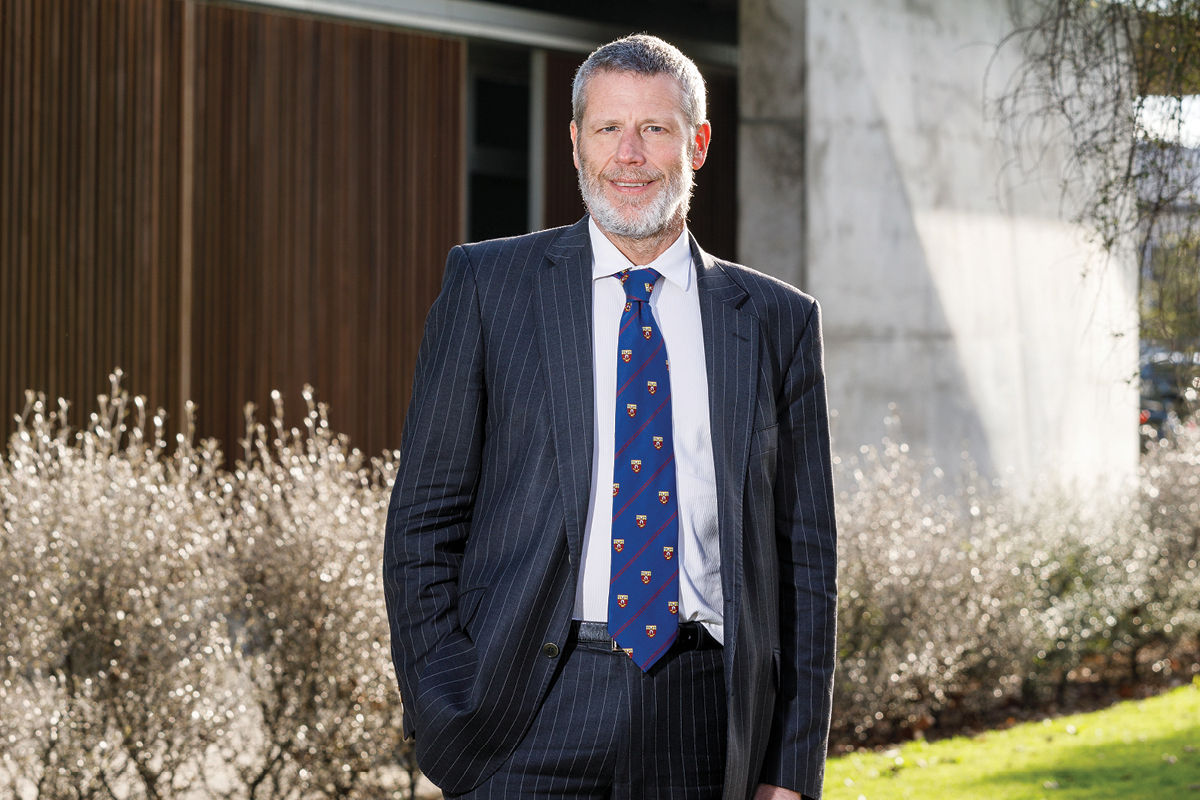The imagery of an earthquake is often employed to suggest a dramatic change: we say a decision shakes the foundations of something and refer to an upheaval as a seismic shift.
For Dr Rod Carr, Vice-Chancellor of the University of Canterbury in New Zealand, his institution and city were literally rocked by an earthquake of 6.3 magnitude in 2011. “Christchurch has changed dramatically in the past decade as a result of dealing with the earthquake,” Rod acknowledges.
“Before that, Canterbury had been the kind of pleasant place where you could be quite content and become complacent.” In the wake of the tragedy, Rod has been inspired by the resilience the city has shown.
The demographics of Christchurch were upturned in the years after the earthquake, with subsequent immigration and emigration leaving the city with a population that was more culturally diverse and significantly younger.
Rod has ensured the university has found the most positive path out of the upheaval and has embraced its new identity as a youthful city. “I think it sets us up well for a dynamic, changing world,” he considers.
Diversity of thought and experience creates a diverse set of opportunities.
Born legally blind, Rod nonetheless went on to build a high-profile and varied executive career, including stints as Deputy Governor and Chairman of the Reserve Bank of New Zealand and as Managing Director of Jade Software.
He became Vice-Chancellor of the University of Canterbury in 2009 and has brought an energetic approach to the role.
Physical fitness = work success
One of the secrets to his career success may be his vigorous exercise regimen; between 2003 and 2016, Rod completed 20 marathons. Each event required 10–12 weeks of stamina training, totalling about 800 kilometres in the lead-up.
He estimates that he has run more than 20,000 kilometres in the past decade and enthuses about the holistic benefit of this exercise.
“I don’t have any doubt that physical fitness is a great support for mental wellbeing. It gives you a capacity for stamina that is often required in these leadership positions.”
Embracing cultural diversity
As Vice-Chancellor, Rod has made it a priority for the university to embrace Christchurch’s cultural diversity.
Specifically, one of the institution’s stated objectives is producing graduates who are confident working alongside Maori culture.
“The reality is that we are a bicultural nation and a multicultural society. Irrespective of your discipline of study, having that understanding is necessary to work, live in and connect with New Zealand.”
He reports a record number of students who identify as Maori are now enrolled and growth is strong across all disciplines, a trend he notes “has been very encouraging”.
Curiosity is motivation
Another focal point for the university is fostering curiosity, which Rod sees as a deeper form of learning than simply cramming for exams. “Curiosity is motivation,” he begins.
“Learning is hard and sometimes it crowds out other, more enticing things in life. So, motivation becomes really important.”
“In my experience, the thing that really motivates is someone saying: ‘I want
to know how and why this thing works.’ Curiosity is a more sustainable source of motivation than any stress or reward.”
Curiosity is a more sustainable source of motivation than any stress or reward.
Can leadership be taught?
Rod would like to be seen as a thoughtful leader, someone adept at creating opportunities and seizing them. He firmly believes leadership skills can be refined with time.
“The research is very ambiguous on whether there is an innate capacity to lead,” he notes.
“I don’t doubt you can learn these skills. To me, leadership effectiveness is all about context. There are certainly different sector skills, experiences and training that set you up to be a more effective leader.”
In retrospect and future plans
Rod has announced that he will not seek reappointment to the Vice-Chancellor role when his term ends in 2019. He will leave satisfied knowing he has shepherded the institution through transformation.
“There have been significant changes, because the sector itself has faced challenges, partly through our own deliberate choices, and partly arising from the effects of the earthquakes.
All this gave rise to a whole agenda of needs but also new opportunities. “If I look back over the nine years so far, it is certainly a different institution and I would argue a stronger one.”

